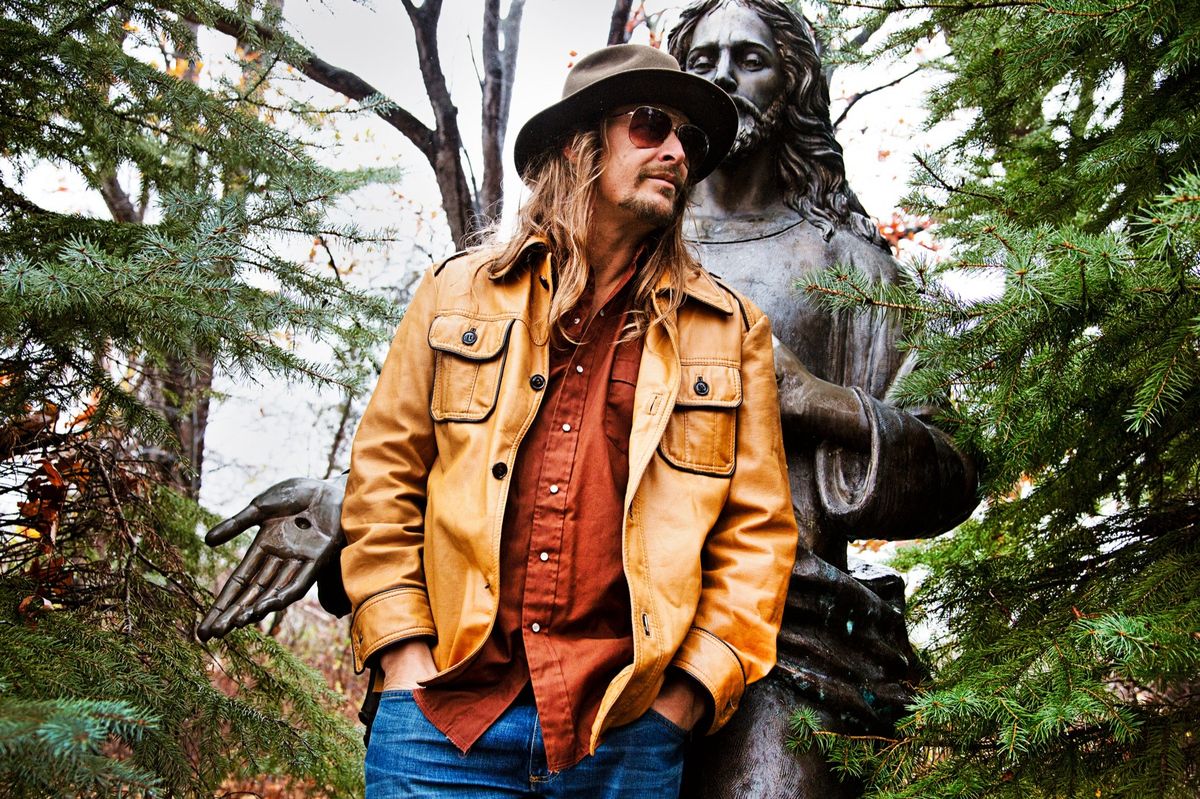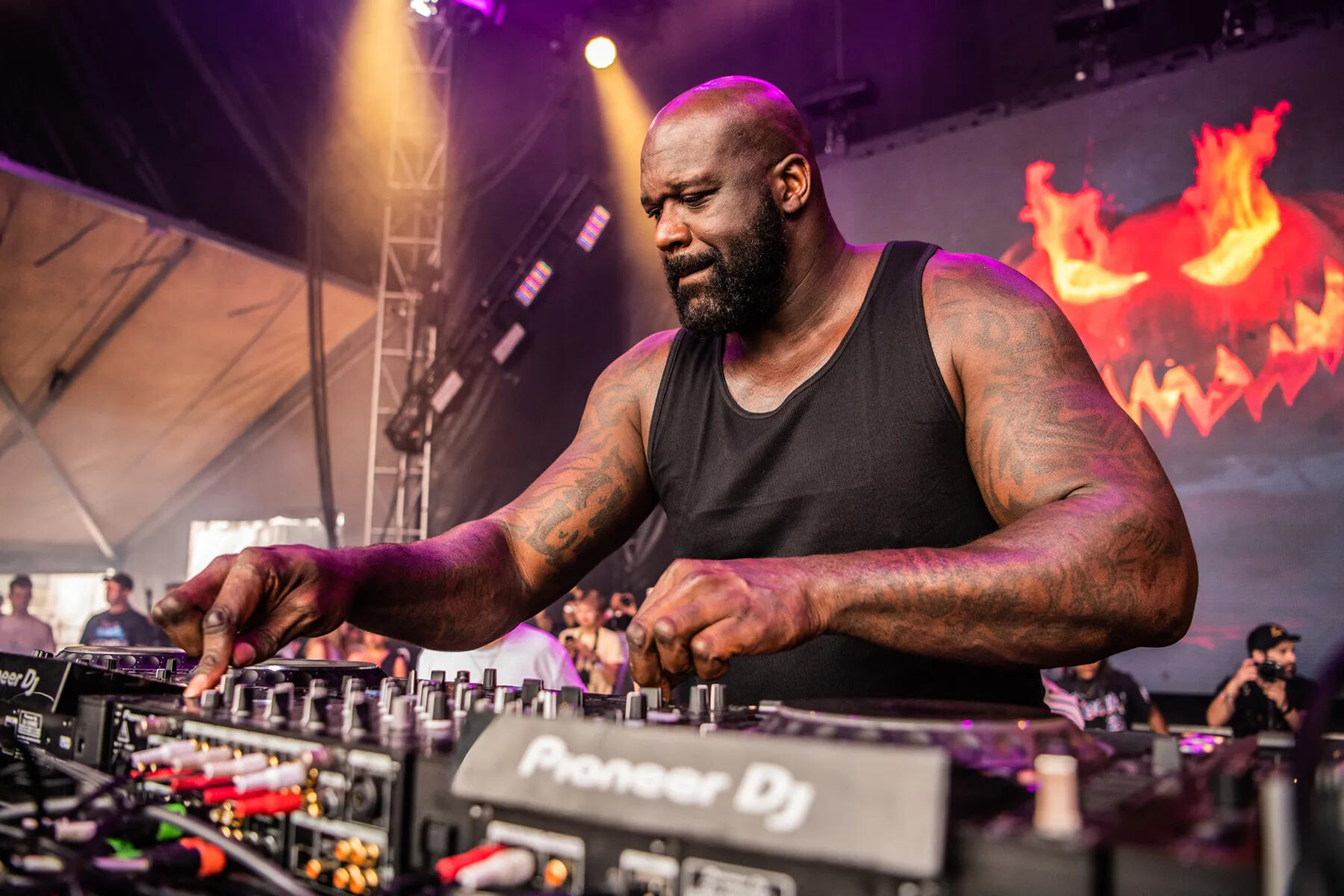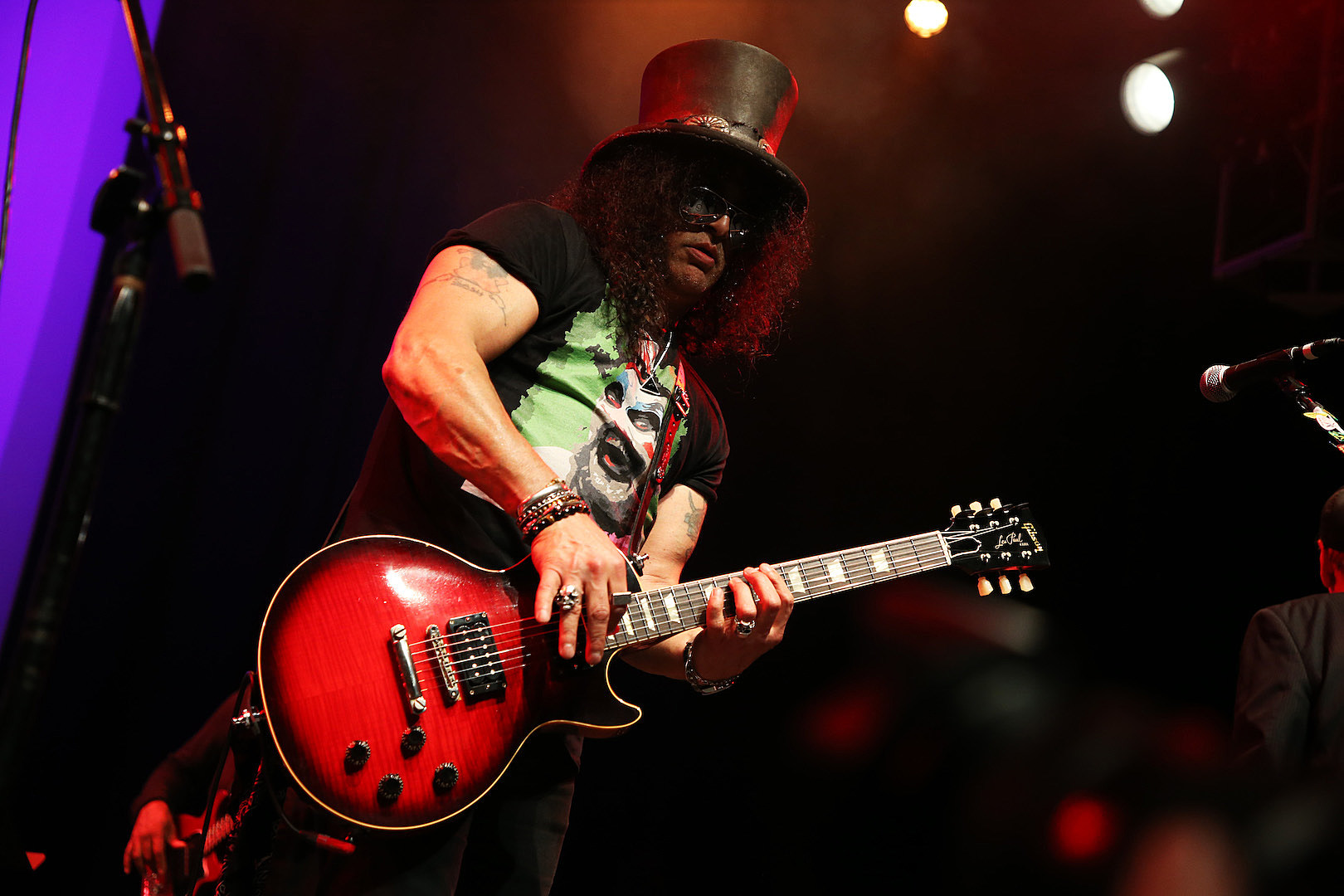

Rock
What Kind Of Music Does Kid Rock Play
Modified: March 11, 2024
Kid Rock is known for his energetic performances and eclectic blend of rock, country, and hip-hop. Experience his unique style and infectious tunes that will have you rocking out in no time.
(Many of the links in this article redirect to a specific reviewed product. Your purchase of these products through affiliate links helps to generate commission for AudioLover.com, at no extra cost. Learn more)
Table of Contents
Introduction
Kid Rock is an American musician, singer-songwriter, and multi-instrumentalist known for his unique blend of rock, rap, country, and Southern influences. With a career spanning over three decades, Kid Rock has established himself as a versatile artist who defies genre boundaries. He has gained a loyal fanbase and achieved commercial success with his energetic performances, catchy tunes, and outspoken personality.
Born as Robert James Ritchie on January 17, 1971, in Romeo, Michigan, Kid Rock developed a passion for music at an early age. Influenced by rock legends like Led Zeppelin and Aerosmith, as well as hip-hop pioneers such as Run-D.M.C. and Beastie Boys, Kid Rock set out to carve his own path in the music industry.
In the early years of his career, Kid Rock gained recognition for his rap-rock sound, fusing hard-hitting beats, aggressive rapping, and heavy guitar riffs. His breakthrough album, “Devil Without a Cause” (1998), catapulted him into the mainstream. The album’s hit singles, including “Bawitdaba” and “Cowboy,” showcased Kid Rock’s unique style and propelled him to stardom.
As his career evolved, Kid Rock began incorporating more Southern rock elements into his music. Influenced by artists like Lynyrd Skynyrd and Bob Seger, he infused his songs with bluesy guitar lines, soulful melodies, and a gritty vocal style. This shift in his sound attracted a new audience and further solidified his status as a versatile musician.
In recent years, Kid Rock has made a successful transition into the country music scene. His album “Born Free” (2010) showcased his love for country music, and he continued to explore this genre in subsequent releases. With songs like “All Summer Long” and “Picture,” Kid Rock demonstrated his ability to blend country storytelling with his signature rock and rap influences.
Beyond his musical endeavours, Kid Rock is also known for his outspoken political views and activism. He has been involved in various charitable causes and has used his platform to advocate for veterans’ rights and American workers, further adding to his reputation as a politically engaged artist.
With his distinctive style and unapologetic attitude, Kid Rock has carved out a unique place in the music industry. As he continues to experiment with different genres and push the boundaries of his sound, there’s no doubt that he will remain a force to be reckoned with in the world of rock music for years to come.
Early Career
Kid Rock’s journey in the music industry began in the early 1990s when he released his debut album, “Grits Sandwiches for Breakfast” (1990). The album, a mix of rap and rock elements, showcased his raw talent and rebellious spirit. Although it didn’t achieve mainstream success, it garnered a small following and paved the way for his future endeavors.
During this period, Kid Rock built a reputation as a charismatic live performer. His energetic stage presence and eclectic mix of musical styles caught the attention of audiences and industry insiders alike. He started gaining recognition as a rising star in the Detroit music scene, frequently performing at local venues and collaborating with other local artists.
In 1993, Kid Rock independently released his second album, “The Polyfuze Method,” which showcased a more polished sound and a greater integration of rap and rock elements. The album’s single, “Back from the Dead,” received some airplay on local radio stations and helped to expand his fanbase beyond the Detroit area.
With his growing popularity, Kid Rock signed a record deal with Atlantic Records in 1997. He released his third album, “Early Mornin’ Stoned Pimp,” under the label. The album showcased his evolving musical style, incorporating elements of funk, soul, and classic rock into his rap-infused sound. Although it did not achieve tremendous commercial success, it set the stage for his breakthrough album to come.
In 1998, Kid Rock released his fourth studio album, “Devil Without a Cause,” which would become his breakout success. The album featured a fusion of rap, rock, and metal, blending gritty vocals with infectious hooks and memorable guitar riffs. The singles “Bawitdaba” and “Cowboy” became instant hits, receiving extensive airplay on radio stations and MTV. “Devil Without a Cause” went on to sell over 11 million copies, solidifying Kid Rock’s status as a rising star in the music industry.
During this period, Kid Rock gained a reputation for his captivating live performances. He embarked on various tours, establishing himself as a dynamic and energetic performer. His high-energy shows, complete with extravagant stage setups and engaging interactions with the audience, further endeared him to his growing fanbase.
With “Devil Without a Cause” as a launching pad, Kid Rock’s early career laid the foundation for his future success. It showcased his ability to blend different genres effortlessly and showcased his electrifying stage presence. Little did the world know that this was just the beginning of Kid Rock’s musical journey.
Rap Rock Era
The rap rock era was a defining period in Kid Rock’s career, where he established himself as a pioneer in blending rap and rock influences. Building on the success of his breakout album, “Devil Without a Cause,” Kid Rock continued to push boundaries and experiment with his unique sound.
With his distinct vocal delivery and multi-genre approach, Kid Rock’s rap rock style resonated with a wide audience. He seamlessly combined elements of rap, rock, and metal, creating a high-energy and rebellious sonic experience. His lyrics often touched on themes of partying, individuality, and the struggles of everyday life.
During this era, Kid Rock released notable albums such as “The History of Rock” (2000) and “Cocky” (2001). These albums featured popular hits like “American Bad Ass,” “Forever,” and “Lonely Road of Faith,” which solidified Kid Rock’s presence in the mainstream music scene and helped him maintain a loyal fanbase.
One defining moment of the rap rock era was Kid Rock’s collaboration with rapper Joe C on the chart-topping single “Only God Knows Why.” The heartfelt track showcased Kid Rock’s versatility as an artist, delving into deeper emotions and introspection while still staying true to his rap rock roots.
In addition to his own music, Kid Rock made a name for himself as a sought-after collaborator. He worked with artists like Sheryl Crow on the Grammy-winning hit “Picture” and Aerosmith on the song “Legendary Child.” These collaborations highlighted Kid Rock’s ability to seamlessly blend his rap rock style with other genres and further expand his musical reach.
While the rap rock era played a significant role in Kid Rock’s career, it also brought some criticism and controversy. Some critics accused him of cultural appropriation for blending rap and rock music, while others questioned the authenticity of his rap skills. However, Kid Rock remained unapologetic, staying true to his artistic vision and continuing to evolve as a musician.
Despite the challenges and controversies, the rap rock era solidified Kid Rock’s position as a unique and influential artist. His ability to seamlessly fuse different musical styles and deliver electrifying performances captured the attention of listeners worldwide. Kid Rock’s contributions to rap rock have left a lasting impact on the music industry and inspired a new generation of artists to experiment with genre-blending sounds.
Southern Rock Influence
Alongside his rap rock roots, Kid Rock discovered a deep appreciation for Southern rock music, drawing inspiration from iconic bands like Lynyrd Skynyrd, The Allman Brothers Band, and Bob Seger. This newfound influence led to a significant shift in Kid Rock’s sound and marked the beginning of a new chapter in his musical journey.
Incorporating elements of Southern rock into his music added a soulful and bluesy flair to Kid Rock’s sound. He began infusing his songs with soul-stirring guitar solos, heartfelt lyrics, and a grittier vocal style. This amalgamation of rap, rock, and Southern influences showcased Kid Rock’s versatility as an artist and appealed to a broader range of listeners.
One of the standout tracks that exemplifies Kid Rock’s embrace of Southern rock is “All Summer Long” from his 2008 album, “Rock n Roll Jesus.” This feel-good anthem samples classic rock songs, including Lynyrd Skynyrd’s “Sweet Home Alabama” and Warren Zevon’s “Werewolves of London,” seamlessly integrating them into a modern rock ballad. The song became an international success, reaching the top of the charts in multiple countries and solidifying Kid Rock’s reputation as a skilled musician and master of genre-blending.
Another notable collaboration that showcased Kid Rock’s immersion in Southern rock was his work with the legendary rock band Lynyrd Skynyrd. He joined forces with the band on their 2003 album, “Vicious Cycle,” contributing to the track “Midnight Rider.” The collaboration allowed Kid Rock to work alongside his musical heroes and further solidify his connection to the Southern rock genre.
In addition to his musical endeavors, Kid Rock embraced the Southern rock lifestyle, incorporating elements of the genre into his image. His love for motorcycles, the outdoors, and the freedom associated with Southern rock culture became apparent in his public persona and his music videos.
The infusion of Southern rock into Kid Rock’s music not only expanded his fanbase but also earned him respect from critics and fellow musicians. His ability to authentically capture the spirit of Southern rock while still maintaining his unique artistic style showcased his versatility as a musician.
With his deep admiration for the legends of Southern rock and his seamless incorporation of their musical elements into his own sound, Kid Rock has solidified himself as a contemporary ambassador of the genre. He pays tribute to the rich history of Southern rock while adding a fresh and modern twist, ensuring that the genre’s legacy continues to thrive.
Country Music Transition
In a surprising turn of events, Kid Rock made a successful transition into the country music scene, further expanding his musical repertoire. His exploration of country music showcased his ability to adapt and evolve as an artist while staying true to his unique style.
One of the key albums that marked Kid Rock’s venture into country music was “Born Free” (2010). The album embraced a more country sound, incorporating acoustic guitars, banjos, and fiddle into the mix. The title track, “Born Free,” became a hit single and showcased Kid Rock’s knack for crafting heartfelt and introspective songs with a country flair.
“Born Free” received critical acclaim for its authenticity and genuine appreciation for the country music genre. Kid Rock’s ability to infuse his rock and rap influences into his country songs created a distinct sound and set him apart from traditional country artists.
One of the standout country-infused tracks from Kid Rock’s catalog is “Picture,” a heartfelt duet with country music icon Sheryl Crow. The song showcased Kid Rock’s vulnerability and demonstrated his ability to connect with audiences on an emotional level. “Picture” became a crossover hit, reaching high positions on both the rock and country charts.
Kid Rock’s country music transition continued with subsequent albums, including “Rebel Soul” (2012) and “First Kiss” (2015). These albums further explored his love for country storytelling and showcased his growth as a singer-songwriter within the genre. Songs like “Redneck Paradise” and “Johnny Cash” demonstrated Kid Rock’s ability to blend country themes with his own unique perspective.
Beyond recorded music, Kid Rock also made a mark in the country music community through live performances. He became a regular at country music festivals and shared stages with established country artists. His live shows incorporated his rock and rap energy, creating an electrifying and engaging experience for both country and non-country fans alike.
Kid Rock’s successful transition into country music not only expanded his fanbase but also garnered respect from the country music community. His ability to seamlessly fuse country, rock, and rap elements, and create a distinctive sound, allowed him to carve out a niche within the genre.
By embracing the storytelling and musical traditions of country music, Kid Rock proved his versatility as an artist and reinforced his position as a boundary-pushing musician. His foray into country music demonstrated his willingness to take risks and explore new creative avenues, further adding to the depth and diversity of his musical catalog.
Political Activism
In addition to his musical career, Kid Rock has been actively engaged in political activism, using his platform to advocate for causes close to his heart. Known for his outspoken and often controversial nature, Kid Rock has not shied away from expressing his political views and supporting issues that resonate with him.
One of the causes that Kid Rock has been vocal about is supporting American troops and veterans. He’s been involved in various charitable initiatives aimed at providing assistance and resources to service members and their families. Kid Rock has performed at numerous military base concerts and donated proceeds from his concerts to veteran organizations.
Moreover, Kid Rock has been a strong advocate for American workers. He has spoken out against outsourcing and the decline of American manufacturing, emphasizing the need to support domestic industries and bring jobs back to the United States. This stance has resonated with his working-class fanbase and solidified his image as a blue-collar advocate.
Over the years, Kid Rock’s political views have often aligned with conservative principles. He has publicly expressed his support for Republican candidates, including former President Donald Trump. Kid Rock’s endorsement of political figures and his attendance at political events have sparked controversy and drawn both praise and criticism from fans and the public.
In 2017, Kid Rock announced his potential bid for the United States Senate, although it was ultimately revealed to be a promotional campaign for his new music. This move further showcased his willingness to use his public figure status to generate discussion and engage with political issues.
While Kid Rock’s political activism has drawn both applause and scrutiny, his passion for causes he believes in cannot be denied. His ability to use his platform to raise awareness and inspire action has shown that musicians can have a significant impact beyond the realm of entertainment.
By taking a stand on important social and political issues, Kid Rock has added depth and complexity to his public persona. His political activism has helped shape his image as an artist who is unafraid to use his voice and influence to make a difference in the world, regardless of the controversy it may generate.
Ultimately, Kid Rock’s political activism serves as a reminder that artists and musicians can play a vital role in shaping public opinion, advocating for change, and inspiring others to get involved in the issues that matter to them.
Musical Style and Influences
Kid Rock’s musical style is a fusion of various genres, making it difficult to box him into a single category. His ability to seamlessly blend rock, rap, country, and Southern influences has resulted in a sound that is uniquely his own.
One of the prominent influences in Kid Rock’s music is classic rock. Growing up, he was heavily influenced by the likes of Led Zeppelin, Aerosmith, and AC/DC. These iconic rock bands shaped Kid Rock’s understanding of melody, guitar-driven soundscapes, and showmanship.
Rap also played a crucial role in Kid Rock’s musical development. Inspired by hip-hop pioneers like Run-D.M.C. and Beastie Boys, he merged rap lyrics with rock instrumentation, creating a unique blend that resonated with audiences. This fusion of rap and rock became his signature sound during his early career.
Kid Rock’s love for Southern rock is evident in his music as well. Artists like Lynyrd Skynyrd, The Allman Brothers Band, and Bob Seger have greatly influenced his style, particularly in incorporating bluesy guitar riffs, soulful melodies, and gritty vocals. This infusion of Southern rock helps to give his music a raw and authentic feel.
Country music has also become a significant influence on Kid Rock’s musical journey. He embraced country storytelling and incorporated acoustic instruments such as banjos and fiddles into his sound. Kid Rock’s ability to fuse country elements with his rock and rap influences has allowed him to explore new creative territory and attract a diverse fanbase.
Aside from these specific genres, Kid Rock is known for his versatility and willingness to experiment with different musical styles. He has incorporated elements of funk, soul, and even metal into his songs, showcasing his diverse musical palette.
With his eclectic blend of genres, Kid Rock has paved the way for a new wave of genre-bending artists. His unique style and ability to seamlessly merge different musical influences have inspired others to push boundaries and challenge traditional genre classifications.
Overall, Kid Rock’s musical style is a testament to his diverse influences and his willingness to defy genre boundaries. From rap-rock anthems to soulful country ballads, he continues to evolve as an artist, leaving an indelible mark on the music industry and captivating audiences with his unmistakable sound.
Conclusion
Kid Rock’s musical journey has been nothing short of remarkable. From his early rap rock days to his exploration of Southern rock and country music, he has continuously defied genre norms and pushed the boundaries of his sound. His unique blend of rock, rap, country, and Southern influences has captured the attention of audiences worldwide and solidified his place in the music industry.
Throughout his career, Kid Rock has demonstrated versatility as a musician, effortlessly switching between different musical styles while maintaining his signature sound. His energetic live performances and unapologetic attitude have earned him a loyal fanbase and made him an influential figure in the world of rock music.
But Kid Rock’s impact extends beyond his music. His political activism and advocacy for causes like supporting American troops and workers have shown his commitment to using his platform for positive change. Regardless of the controversy surrounding his views, Kid Rock’s passion and dedication to the issues he believes in cannot be denied.
Looking ahead, there is no doubt that Kid Rock will continue to evolve as an artist and surprise us with new musical ventures. His willingness to experiment with different genres and push the boundaries of his sound will undoubtedly keep his music fresh and relevant for years to come.
Kid Rock’s legacy will be remembered as that of an artist unafraid to defy conventions, blending genres effortlessly, and fearlessly speaking his mind. His influence on the music industry and the inspiration he has provided to countless musicians cannot be overstated.
So, whether you’re a fan of his rap-rock anthems, his country-infused ballads, or his Southern-tinged rock songs, Kid Rock’s music continues to resonate with listeners from all walks of life. He remains a true icon, leaving an indelible mark on the world of music and serving as a constant reminder that there are no boundaries or limits when it comes to artistic expression.











